How can supplements support rugby players' health and performance? Ruth Wood-Martin, former Performance Nutritionist with the Irish Rugby Football Union, examines the evidence.
🕒 4 min read
A modern nutritional approach to rugby requires careful application of research findings, underpinned by a sound understanding of the physical and physiological demands of the game.
A food-first approach is the cornerstone of the application of nutrition science, but a targeted sport supplement plan can also help.
The best supplements for rugby players
These supplements can support both a player's wellbeing and their performance. If you're already following a nutrition programme, always consult your performance nutritionist first.
1. Multivitamin and mineral preparation
A multivitamin and mineral supplement should be broad-spectrum – containing all essential vitamins and minerals but not more than 100% of daily requirements. A multivitamin supplement can plug nutritional gaps when a player's overall food intake may be restricted or disrupted.
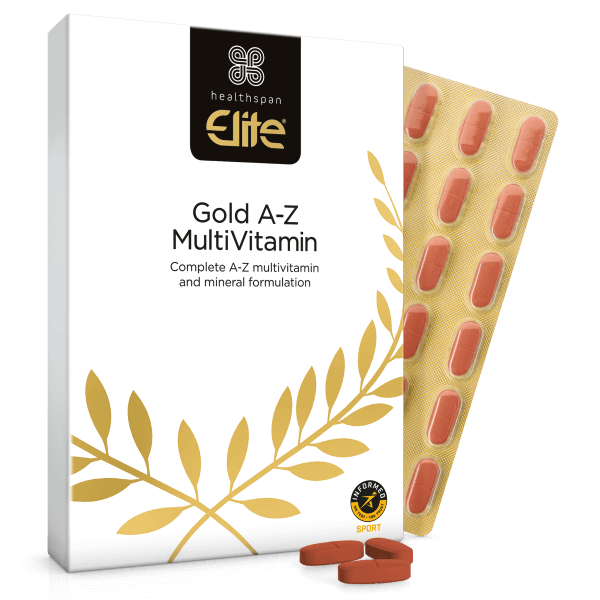
Gold A-Z Multivitamin
Complete A-Z formulation containing 27 essential nutrients
- All the vitamins and minerals needed each day
- 100% NRV of iron, selenium and zinc, vitamins A, C, D and E
- Informed Sport approved
2. Whey protein
Along with protein and carbohydrate from food, taking whey protein after a high-intensity workout is a convenient way to help players achieve protein targets within an optimal timeframe.
A serving of between 20g and 40g whey protein (depending on body size) is sufficient to optimise muscle growth, maintenance and repair after a high-intensity session.
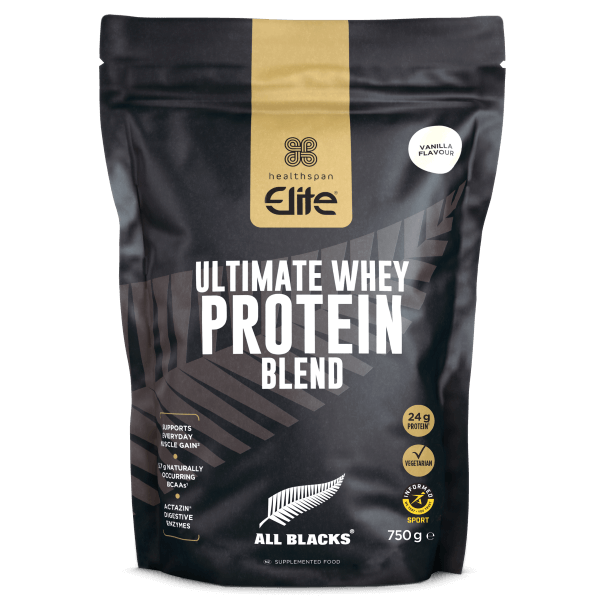
All Blacks Ultimate Whey Protein Blend
Protein powder co-created with the All Blacks
- 24g protein per serving to support muscle growth
- Added protease to break down protein for better absorption
- Available in vanilla, strawberry and chocolate. Low in sugar
3. Probiotics
Gut and immune health are key to avoiding illness. Helpful bacteria in the gut help to protect against gut infection and support player wellbeing. Strenuous exercise, travel and competition can place stress on the gut, resulting in gut discomfort and impacting performance.
Probiotics are live helpful bacteria in supplement form that have been linked with a multitude of health benefits, with digestive and immune health two of the most-researched areas.
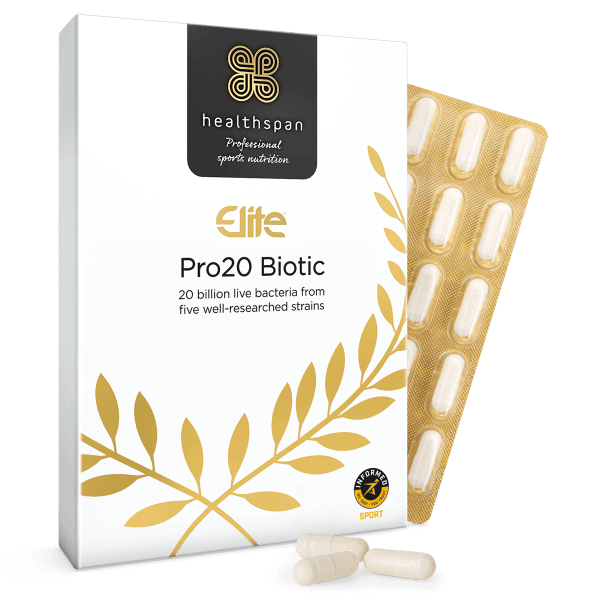
Pro20 Biotic
'Friendly' bacteria specifically chosen for competing athletes
- 20 billion live bacteria
- Five well-researched strains
- Supports the protective intestinal microflora in the gut
4. Creatine
Creatine is a protein that combines with phosphorus and is stored in muscle cells, creating an energy source that fuels high-intensity activities such as resistance training and sprinting. Stores of creatine in muscle do not last long, and taking supplements to increase creatine stores has been shown to increase power output and high-intensity exercise capacity.
Recent research has shown that creatine can protect brain function; what's more, a concussive event (excessive force to the head) lowers brain creatine levels, and supplements may help these levels to recover.
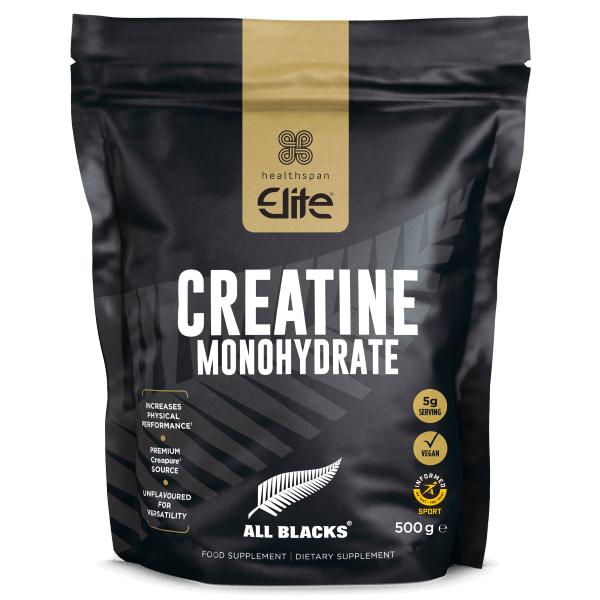
All Blacks Creatine Monohydrate
An ultra-pure source of creatine proven to increase your physical performance and intensity
- Improves physical performance in successive bursts of short-term, high-intensity exercise
- Micronised for easy mixing
- Developed in collaboration with the All Blacks
5. Buffering agents
High-intensity muscle contraction produces acid that needs to be buffered, or neutralised, and so allow this level of exercise to continue.
Buffering agents such as Beta-Alanine, Sodium Bicarbonate and Sodium Citrate have been shown to help neutralise the acid produced during high-intensity exercise, and so delay muscle fatigue.
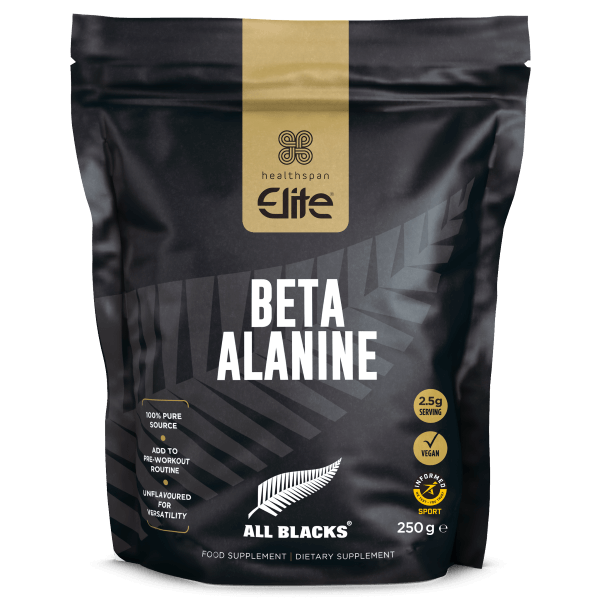
All Blacks Beta Alanine
100% pure source of beta-alanine to supplement your pre-workout routine
- Pure, unflavoured source of the amino acid beta-alanine
- Plays a vital role in the production of carnosine, which buffers lactic acid
- Suitable for plant-based diets
6. Omega 3 (fish oil)
Omega 3 fatty acids are a group of essential fats that have been shown to impact the health and performance of athletes in many ways, in particular the management of inflammation. EPA and DHA are the two key types.
EPA and DHA are found mainly in oily fish, such as salmon, mackerel or sardines. Many athletes do not consume enough omega 3, and supplements can help to increase levels of EPA and DHA.
It's also starting to emerge that DHA fatty acids can protect brain health and have an anti-inflammatory effect. Protocols are emerging that use an increased amount of DHA to help brain health after a concussive event.
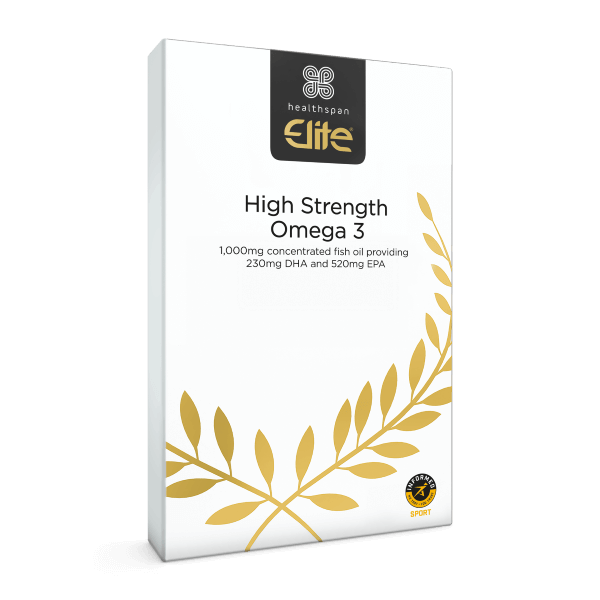
High Strength Omega 3 1,000mg
1,000mg Fish Oil Concentrate with increased levels of omega 3 fatty acids, providing 230mg DHA and 520mg EPA
- 230mg DHA and 520mg EPA per capsule
- Supports brain, heart and eye health
- Highly distilled and sustainably sourced
7. Vitamin D
Vitamin D is mainly made in the body when skin is exposed to sunlight; dietary sources of Vitamin D are poor and generally considered insufficient to maintain adequate levels.
Vitamin D is linked with many biological functions relevant to a rugby player, including bone health, immune function and skeletal muscle function. Many athletes have insufficient or deficient vitamin D levels, especially in the winter months, so it may help to take vitamin D supplements at this time of year.
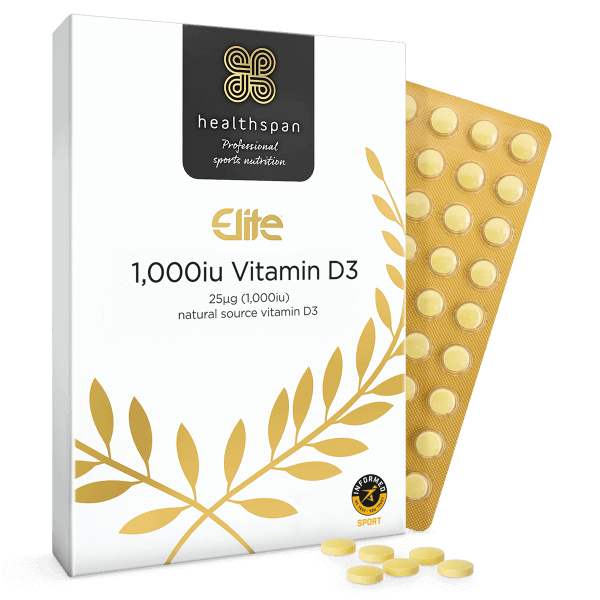
Elite Vitamin D3 1000 iu
1,000iu natural source Vitamin D3 to support immunity, muscles & bones
- Supports your immune, muscle and bone health
- 1000 iu (25 mcg) of vitamin D3, the body-ready form
- One-a-day formulation, suitable for vegetarians
Also consider:
For connective tissue injuries: Collagen
Collagen is the main protein that makes up tendons and ligaments (the connective tissues). After sustaining a connective tissue injury, supplementing with collagen and vitamin C can improve tendon and ligament repair.
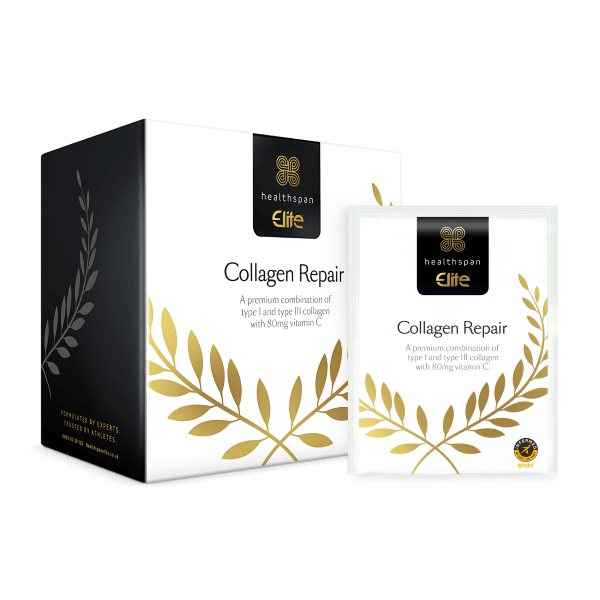
Collagen Repair
Type I and type III collagen in an orange-flavoured drink
- 20g type I and type III hydrolysed collagen per serving
- 80mg added vitamin C to support cartilage formation
- Collagen plays a vital role in tendons and ligaments
Supplements, anti-doping and Informed Sport
Finally, with all sport supplements, the player is responsible for what they consume. Make sure you know what you are taking and why you are taking it. Always choose sport supplements that have been tested for banned substances listed on the World Anti-Doping Agency (WADA) prohibited list – these will carry the Informed Sport logo.








